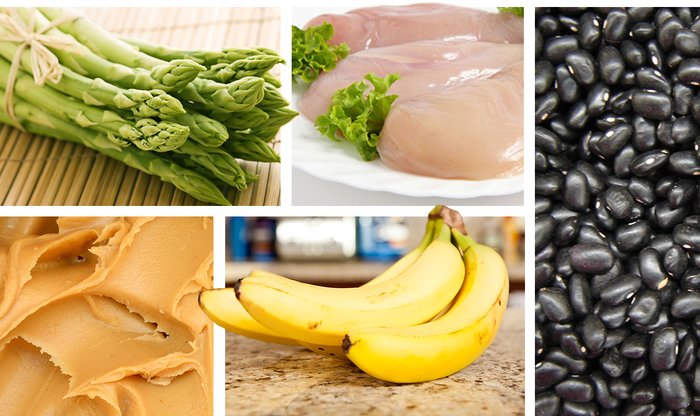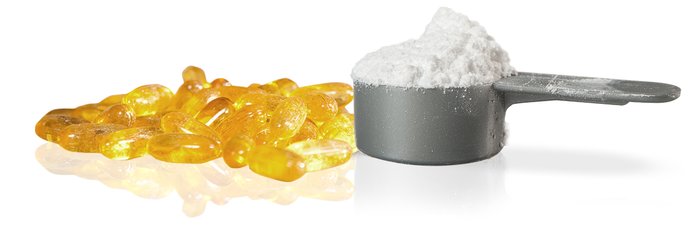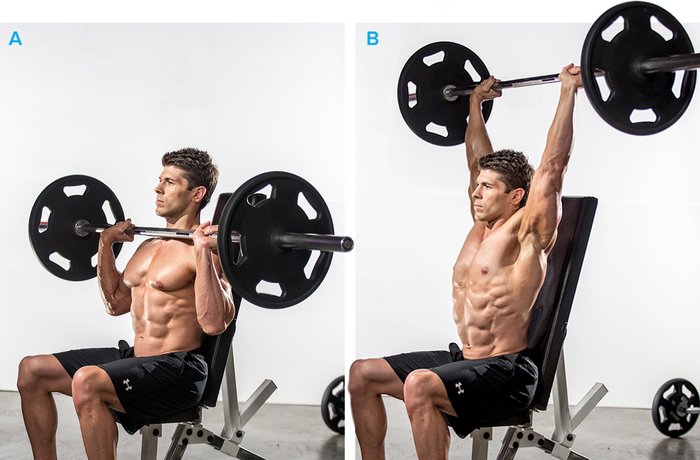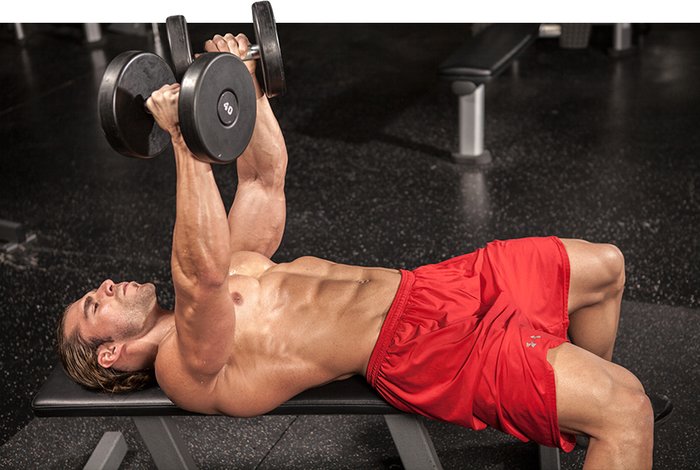It's getting to that time of the year where the summer cut is finally coming to a close and now the fun begins. Ladies and gentlemen, it's time to bulk! For those of you just starting out, this is probably all new to you and you really don't understand the concept of cutting and bulking and why things happen during certain times of the year.
For most, fall/winter is the time to start a bulking diet and put on some slabs of meat. If they add a little fat during this time, so be it. They will be wearing a lot of long-sleeved sweatshirts; therefore, they can hide whatever fat they might gain.
Then come spring/summer it's is the time to cut and drop the fat you might have gained during the cold months, to show off the new lean mass you added. Not to mention most people go to the beach or go on vacation during these months, so it naturally makes sense to diet and hit some cardio during this time to get in the best shape of the year.
Bulking during this time will have you looking slightly heavier/bloated than if you were cutting. Not to mention fat gains with a bulking will be apparent, especially when in a bathing suit.
Now on to the good stuff! We all start from scratch. We aren't placed on this planet knowing everything without learning it. So here I am to the rescue! The rest of this article is especially for the new guys who need some tips on how to effectively bulk.
The following are ten tips (in no particular order) to help you on your way to packing on some muscle.
1. Food
Here is a compilation of things that you should have on your grocery list. You can pick and choose the foods in those categories that you like.

Proteins
- Egg White
- Fish
- Ground Turkey
- Chicken
- Round Steak
- Tuna
- Protein Powder
Complex Carbs
- Oatmeal
- Black Beans
- Cereal
- Brown Rice
- Potatoes
- Sweet Potatoes
Fibrous Carbs
- Broccoli
- Asparagus
- Cauliflower
- Celery
- Lettuce
- Bell Peppers
- Spinach
Other Produce And Fruits
- Lemon
- Onion
- Tomatoes
- Banana
- Zucchini
Healthy Fats
- Olive Oil
- Almonds
- Peanut Butter
- Salmon
- Flaxseed Oil
Dairy And Eggs
- Egg Whites
- Cottage Cheese
- Non-Fat Milk
Calories and Meals
While bulking, you want to eat more calories (more than maintenance), and also eat more often. So in essence, you will be eating smaller meals than you would if you were only eating three each day (like normal humans). These meals will consist of protein, carbs, and fats.
It doesn't have to be anything big; it could be something as simple as an apple with peanut butter. But you should strive for at least 6-8 small meals per day. By eating more often you will have a constant supply of fuel throughout the day which is a constant supply of nutrients to your muscles to help them grow.
Not only will it do that, but it will also help keep your metabolism up so you don't start adding body fat. You should also be striving for 1-2 grams of protein per pound of body weight you have. So if you weigh 150 pounds, you want to get between 150-300 grams of protein a day. Each of these meals can be spread out 2-3 hours apart.
2. Supplements
Here is a list of supplements which are great during any time of the year, including while bulking.
Note: I do not recommend supplementation for anyone under the age of 18, nor is supplementation a replacement to a good diet.
Whey Protein (Concentrate Or Isolate)
Protein is the building block for muscle. Without it, you won't make the gains you are looking for. You can use whey protein at any time of the day and it won't hurt you. There are many different brands and flavors out there; find one that suits your taste buds and isn't overpriced.
You can use it pre-workout, post-workout, as a snack, or add some fruit and throw it in the blender to use as a meal replacement. It is a quick and easy way to get your daily protein intake.
Casein Protein
Casein protein is the best protein you can get to keep you anabolic throughout the night. It is a slow-digesting protein which slowly breaks down over a span of around 6-8 hours. The last thing you want to do is go into a catabolic state and lose your hard-earned gains. This protein comes in especially handy before bed when compared to whey.
Multivitamin
It is a necessity to purchase a good multivitamin. You need to get proper vitamins and minerals which you can't get from food alone. A multivitamin is essential to help with everyday activities and give you exactly what your body needs to maintain a healthy lifestyle.
Creatine
Creatine will help you not only recover better, but it will help you gain some lean mass quicker. Creatine is one of the most widely studied supplements out on the market today. There are no harmful effects from creatine and it can be used safely before and after workouts. Creatine can safely be used for both pre- and post-workout. There is no need to do a loading phase or cycle creatine.

Fish Oil
Fish oil gives you EFAs which are the "good fats" that we all need. Fatty acids are a necessity which most people don't understand. They are important for cellular, heart, and metabolic health. We do not get enough good fats in our diet each day, so supplementing with fish oil is a must.
Amino Acids
Amino acids are the building blocks for protein. Without protein, gains are minimized. Amino acids are also used to help the brain function properly. Everyone needs BCAAs to help build muscle and recover. Yes, protein powder has amino acids in it, but look at the nutrition label and if they are in low doses, then it is best to get yourself some BCAAs.
3. Compound Movements
Compound movements are what make you grow. Isolation movements are more for shaping muscles rather than jacking up the growth hormones in your body and gaining some mass. Compound movements are the squats, deadlifts, barbell presses, military presses, and similar movements.
They are any movement that requires more than one muscle to execute an exercise. These are the foundation to bodybuilding and bulking.

4. Rest
It's a fact that you don't grow while in the gym. You grow while you rest outside of the gym. Sure, when you have a nice hard pump in the gym and your muscles are swollen and look larger, you think you're getting bigger and bigger with each set. You are incorrect. That nice pump that we all long for is only temporary.
After about an hour those effects start to diminish and you will be about the same size as you were before you stepped into the gym that day. You need to rest your muscles and get adequate sleep at night to help increase growth hormones in your body, which in turn help you gain lean muscle mass. You should be getting no less than 8 hours of sleep per night. Anything less and you will be cutting yourself short with your gains.
5. Post-Workout Meal
Post-workout meals are very important. You can think of it as an old coal train. You throw a whole bunch of coal in to start the train and then you stop giving it coals. What eventually happens? The train stops. Same goes with your body. The food you eat pre-workout gets used as fuel for the body during exercise.

If you don't feed your body, it can't grow. And it is especially needed post-workout because that is when your body absorbs nutrients best.
Then as your workout comes to an end, the fuel has surely run out and it will be starving for more to grow. If you don't feed your body, it can't grow. And it is especially needed post-workout because that is when your body absorbs nutrients best.
Your body is literally starving for nutrients at the end of your workout. If you don't feed it, it simply can't repair itself and grow.
At the post-workout meal, you need to be taking in around 45-50 grams of protein. Add in one to two times that amount of carbohydrates (90-100 grams). If you are a hard-gainer, make it closer to 2 with most all of them coming from simple sources. If you tend to gain weight easily, it's better to stay closer to the equivalent of the amount of protein and make it half simple, half complex sources.
6. Keep Cardio To A Minimum
This one isn't rocket science; you don't need a PhD to understand. Obviously when you do cardio, you use up fuel (calories). Calories are what you need to grow. You take away calories, you take away gains. Now I'm not saying to stop cardio altogether, because you don't need to.
Cardio is actually a good way to keep from putting on body fat during a bulking phase and an excellent way to keep the heart healthy.
Cardio also increases your appetite so you will be able to down some extra calories to make up for the loss you experienced during your workout. You can get away with doing some low-intensity cardio without losing lean mass gains, so do not be afraid to do cardio while bulking.
7. Increase Your Calories
In order to gain weight (muscle), you must increase your calories. This does not mean you can eat McDonald's or Wendy's every meal, since you would be increasing your calories. You could do that, but I wouldn't recommend it unless you want to look like a blimp.
An easy way to do this (especially if you are stuck at the same weight) is to track your calories. When you find out how many calories you are eating which maintaining your weight, add 250-500 calories each day, and by the end of the week see if you gained any weight.
Don't forget that 3500 calories is equal to one pound. So theoretically, if you increased your calories by 500 each day for a week you should gain a pound. Now let me explain something to you; this isn't as easy as you may think. You can't just eat some Twinkies or eat a cake.
You still need to be eating clean to ensure you don't gain fat. Yes, during your bulking phase, you will gain some fat. But do not get worried about this unless you are gaining a lot of fat, in which case you need to look at your diet and clean it up more. It would be a smart idea for you to write down your weight once a week on the same day and at the same time.
This will help with the accuracy of your results. You can also get your body fat measured once per week to see how much fat you are gaining. Like I mentioned before, if you are gaining a lot of fat, re-evaluate your diet.
8. Water
Water is key no matter what you are trying to accomplish. Staying hydrated increases protein synthesis, so you will make better use of the protein you ingest. Water is also a good way to stay hydrated without adding sugary drinks like soda and tea.
Strive for at least a gallon of water per day. If you sweat a lot during your workout, you definitely should be shooting for more than a gallon per day. An easy way to track your water intake is to carry around a gallon jug wherever you go.
When it's empty, you know you got your gallon in. At that point you can refill and start over. Water also keeps your metabolism up due to the oxygen content in the water.
9. Training
Most people have the mentality that more is better. This is not the case with training. Most of the time the people who have that mindset are overtraining and in turn minimizing their gains. Depending on your exercise level, you could train smartly with 3-6 days in the gym.

The key is to experiment and find out what training style works best for your body.
You want to keep your workouts short but intense. This means that you should ideally keep your workouts to less than one hour. Anything more and you are lowering your natural testosterone levels, which you don't want to do. The key is to experiment and find out what training style works best for your body.
Some people respond well to lower rep sets while others find higher reps sets are the way to go. Some people can get away with a low number of sets while some people need to complete many sets to get results. I would actually recommend starting with lower sets, evaluating your progress, and adjusting it accordingly.
If you find you aren't growing with the number of sets you are doing, gradually increase the sets and see how you respond to that. When it comes down to it, there really is no one way to train. Everyone is different. The fun part is trying new things to see what works best for you.
If building the body of your dreams was easy, then everyone would look good. It takes hard work and determination. Keep training hard and never be afraid to switch things up. Hitting the muscle differently is what sparks new growth, which is what I'm sure everyone is trying to accomplish.
10. Have Fun!
For most of us, bodybuilding isn't our full-time job. And for the majority of us, that is a good thing. Being a professional bodybuilder isn't for everyone. The determination and hard work isn't for the faint at heart. Sure, anyone can say they are a bodybuilder, but to be good at it, you need to stick with it.
You need to find something that motivates you and go with it. Set some short- and long-term goals for yourself, check on your progress, and re-evaluate things. Make things fun, try new things. You do not want to dread going to the gym every day.
By evaluating your progress and seeing the improvements, that should be enough to make you want to keep hitting the gym. Sure, there are days where everything around you is going wrong and you really don't feel like going to the gym, but once you are there everything changes.
The weights don't complain, they don't yell at you (unless you have some serious mental issues). It's a great way to release stress. Bodybuilding isn't just a weekly or monthly thing. Bodybuilding is a lifestyle. Where it takes you, no one knows. But what do you have to lose by having fun in the process? Living the bodybuilding lifestyle is a great way to stay healthy and achieving the body you always wanted. Your first step begins now.

